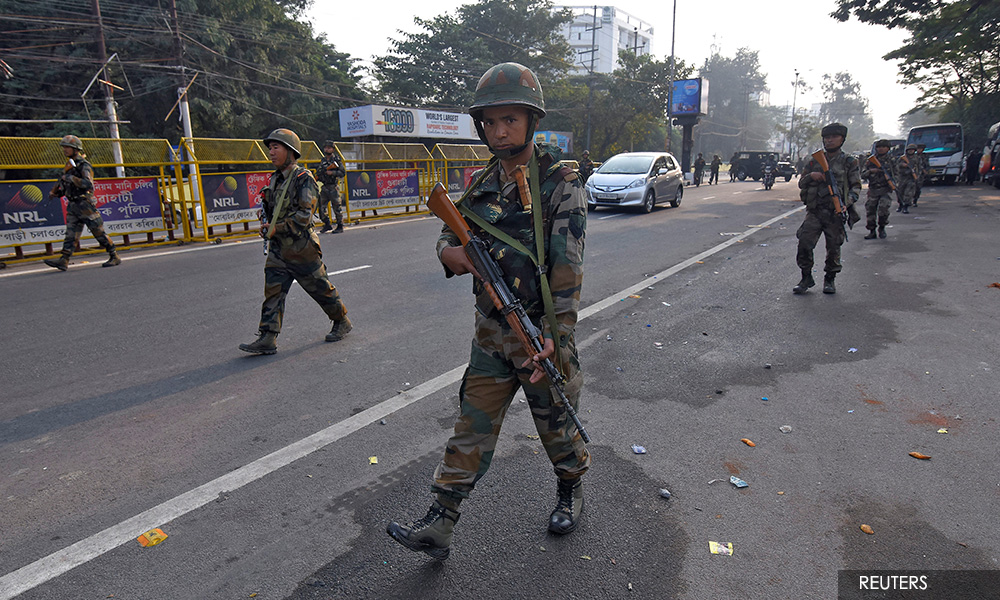Protests against India's religion-based Citizenship Amendment Bill (CAB) have intensified, with police in New Delhi stopping thousands of students from marching towards the Indian parliament on Friday.
Dozens of protesting Jamia Millia Islamia (JMI) university students were injured as police beat them with sticks and fired teargas shells.
"A march was organised by the university teachers' association. We joined it and were going towards parliament to protest against this discriminatory law when police began beating students. At one point, police were firing teargas shells every minute," post-graduate student Hamid Khan said.
About 100 students were injured, 15 of them seriously, and at least 42 were arrested by Delhi police, the university's chief proctor Waseem Ahmad Khan told Bernama.
Students continued their protests well into the night, undeterred by a heavy police presence around campus.
Their frequent attempts to march out of the university were thwarted.
The Indian parliament has passed the Citizenship Amendment Bill that seeks to give citizenship to non-Muslim asylum seekers from Afghanistan, Bangladesh and Pakistan if they have fled "religious persecution" and arrived in India before 2015.
Critics say the bill discriminates against Muslims and is a precursor to the ruling Hindu nationalist government's planned National Register of Citizenship (NRC) that will ask people to prove their citizenship credentials.
Some opposition politicians in India have compared the CAB and the NRC to racist laws in Nazi Germany and the Israeli citizenship law.

Protests were also held in other parts of India on Friday to oppose the new citizenship law's implementation.
A massive demonstration was organised at Aligarh Muslim University (AMU), 135 kilometres from Delhi, in the state of Uttar Pradesh.
"Students wanted to march to the Aligarh district magistrate's offices, but they were blocked by a huge deployment of security forces. There is widespread anger against this law, which we fear will turn India into a fascist Hindu state," student leader Mashkoor Ahmad Usmani told Bernama.
In India's Northeast region, an ethnic, linguistic and religious tinderbox, violent protests forced authorities to suspend transport services on Thursday in many places and impose a curfew in Guwahati, a major city in Assam.
People in the Northeast fear that outsiders will be settled in their region under the CAB provisions and it will disturb the delicate demography.
The annual India-Japan summit planned to be held in Guwahati between December 15 and 17 has become a casualty of the unrest.
India and Japan have decided to defer the visit of Japanese Prime Minister Shinzo Abe to "a mutually convenient date in the near future", Indian Foreign Ministry spokesman Raveesh Kumar said on Friday. - Bernama

